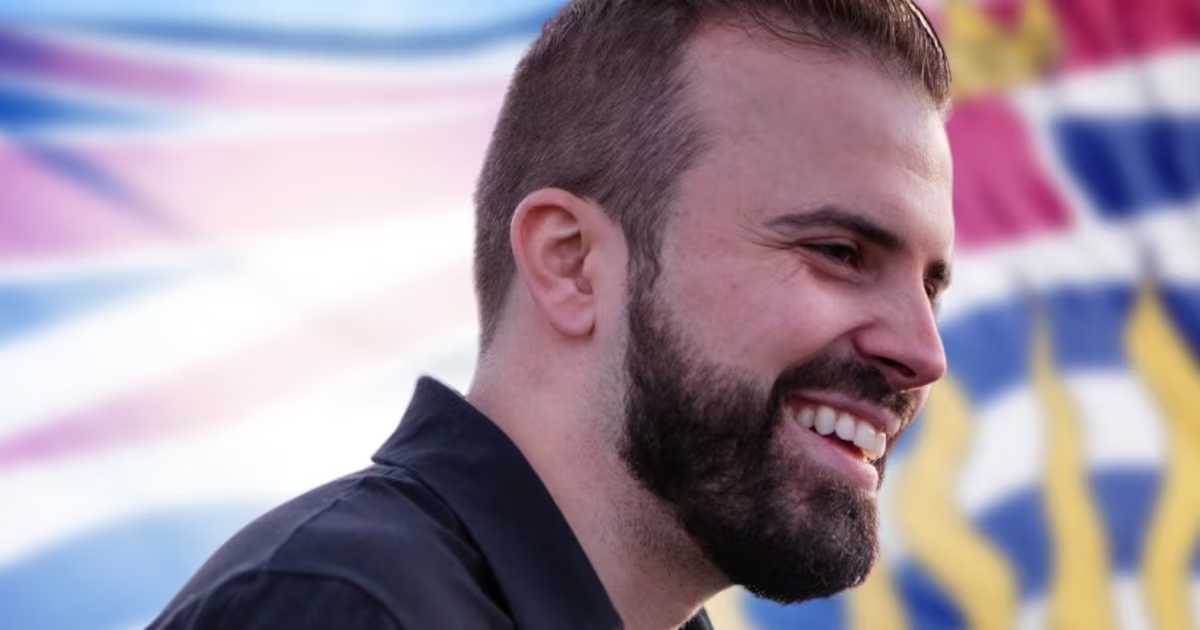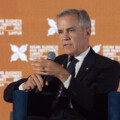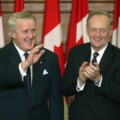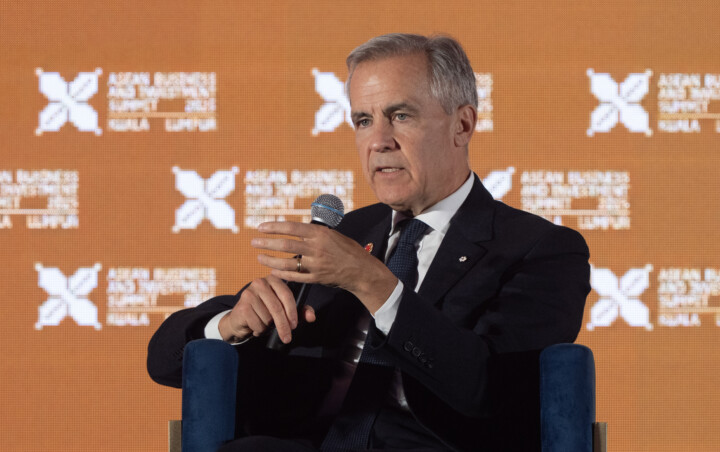This year’s federal election saw a host of first-time members of Parliament joining the political fray, including a number of high-profile candidates from across the parties. This includes Aaron Gunn, a former conservative activist, journalist and filmmaker, who’s now the Conservative member for North Island—Powell River.
The Hub’s Elie Cantin-Nantel recently spoke with Gunn about his path to politics, what he hopes to accomplish, and why young men are shifting to the Right.
ÉLIE CANTIN-NANTEL: During the election, some activists called on the Conservative Party to drop you as a candidate over your rejection of the narrative that Canada committed genocide against Indigenous people. There were also old social media posts of yours that were scrutinized. What was it like to go through that? Were you at all concerned that the party might remove you? Or were you confident they had your back?
AARON GUNN: I was confident they’d have my back, because the party [already] knew about the posts. They weren’t secret posts. It was kind of a media contextualization that these “resurfaced.” The Party and the leader were all aware of that when I became a candidate back in 2023, so we weren’t that concerned.
The NDP wanted to make the election about old tweets because they didn’t want it to be about what their record was over the past seven years, propping up the Liberal government.
ÉLIE CANTIN-NANTEL: Do you think party leadership sometimes views outspoken individuals like yourself as political liabilities?
AARON GUNN: If that’s the case, I haven’t seen it yet.
Politics is a team sport in the sense that you have to recognize how your words could affect your colleagues. There are certain discussions that should happen internally.
But there have been instances as well where I’ve talked to Pierre [Poilievre] about issues that might be outside of the party’s talking points, but that are important for my constituents, specifically in my riding.
He says that as an MP, your first job is to represent your constituents. I think the party system that we have in Canada is not perfect, but I also think that the Conservative Party, in many ways, has the most democratic caucus. A perfect example is the Reform Act, which, besides the Conservatives, only the Bloc Québécois has chosen to enact. It’s just bewildering to me how you would take democratic power out of your own hands.
I’ve had nothing but good experiences with the whip’s office and with the Question Period team. They haven’t edited anything I’ve done. I’ve been posting on social media without running it by anybody. I write my own questions for Question Period. I actually think it’s been very reasonable. Now, I think how they managed candidates was a different story. But I’m a member of Parliament now.

ÉLIE CANTIN-NANTEL: While you won your race, flipping North Island—Powell River, the Conservatives did not win the election. Why didn’t the Conservatives win? How much is the party to blame?
AARON GUNN: I think we ran a very strong national campaign. We got the highest percentage of the popular vote since the 1980s for the Conservative Party.
I think that the main story of the campaign is the utter collapse of the NDP vote into the Liberals. I believe it was among the highest combined shares of the popular vote for the two main parties since the 1930s.
There are always things you could have done better.
I think we mainly lost because of the collapse of the NDP vote and the distraction of President Donald Trump and U.S. politics, particularly for those over 55, who then gravitated back to the Liberal Party.
ÉLIE CANTIN-NANTEL: You were previously a “small-c” ideologically conservative journalist, filmmaker, and activist who explored issues across the country through your Politics Explained series. Now you’re an MP who’s part of the “Big-C” Conservative partisan political space. How has that transition been for you?
AARON GUNN: So far, so good.
In some ways, I think I’ve had the least amount of a transition. Before, I was making documentaries and short videos criticizing government policy, holding the Liberal government to account, and communicating to Canadians about how their policies were taking the country in the wrong direction. I’m kind of doing the same thing now, except from the floor of the House of Commons. I’m also turning that into videos and putting them out over social media. So in some ways, things haven’t changed that much. I’m still trying to be a voice for the everyday, hardworking people in my riding and in Canada, and just trying to bring common-sense policies back to the country.
ÉLIE CANTIN-NANTEL: Your most popular film, “Vancouver is Dying,” touched on the opioid crisis and “safe supply” debate in Vancouver. When you first started speaking out about the crisis, you faced a lot of backlash from safe supply advocates on the left. But a few years later, B.C. rolled back drug decriminalization, and Ontario is moving to shut down drug consumption sites. How did it feel to see safe supply increasingly rejected?
AARON GUNN: I wish it hadn’t taken this long. There’s been a lot of damage created. There’s been, ironically, a lot of harm created by these so-called harm reduction policies. I think for too long, politicians, especially in British Columbia, were too scared or too uninformed to tackle this issue. For example, when I released that documentary, you had the BC Liberal and NDP uni-party in British Columbia that were both for decriminalization, both for handing out free opioids. The media all too often weren’t doing their job when it came to investigative journalism.
It’s vindicating on a certain level, but that’s little consolation when you have 50,000 Canadians who have died from drug overdoses since the Liberals came to power in 2015.
ÉLIE CANTIN-NANTEL: In the past year, we’ve seen pro-Palestinian protesters chant slogans like “Long live October 7” and “Death to Canada,” as well as Khalistani extremists shouting things like “Kill Modi politics,” and storming Hindu temples. Do you believe that the spilling over of foreign conflicts into Canadian streets is just as worrying when it comes to damaging Canadian culture?
AARON GUNN: I think the period of unrestrained mass immigration that we’ve had in Canada, where some people have come to this country and brought their foreign conflicts or foreign political issues with them, has been one of the factors leading to a cultural fragmentation of the country, for sure.
I think we shouldn’t have two tiers of citizenship in this country. If you come to Canada, you should leave those foreign entanglements at home.
ÉLIE CANTIN-NANTEL: In that maiden speech, you also spoke about the debt crisis. You were previously in charge of a Canadian Taxpayer Federation initiative aimed at millennials called “Generation Screwed.” Since then, things have only gotten worse for my generation, Gen Z (born between 1997 and 2012). Do you have any hope that Mark Carney will take the debt issue seriously? And if not, if millennials were “Generation Screwed”, what do we call the Gen Z generation?
AARON GUNN: “Generation Incredibly Screwed.”
Since Generation Screwed was launched, the debt has more than doubled under the Liberals.
I used to tour the country with the giant debt clock that had the numbers spinning up in real time, showing how much debt was being left to future generations to pay for.” That debt clock no longer exists because they literally ran out of digits. They’ve taken the federal debt from just over $600 billion to over $1.2 trillion and counting.
Unfortunately, a lot of people are saying Mark Carney is just more of the same as Justin Trudeau when it comes to government spending and government borrowing. So far, he’s been even worse. They’ve announced even more spending without any matching spending cuts. During the election campaign, Mark Carney was promising more than $200 billion in additional debt over the next four years. It’s not sustainable. We’re slowly bankrupting the next generation.
ÉLIE CANTIN-NANTEL: We are seeing young people, particularly young men, shifting to the Right in Canada. Do you think this is purely because of economic reasons? Or do you think there are also social and cultural factors at play here?
AARON GUNN: I think it’s a mix of both.
The economic issues, especially surrounding housing prices, are a big factor. The fact that we are becoming poorer as a country, and that there are not as many good-paying jobs as there used to be. The resource sector has been continually gutted by government policies, and that disproportionately negatively affects young men who would be working in those industries.
Then, I think there’s a cultural component. People want to be proud of their country. They want to be part of a strong national identity. And when you have a government and a media complex that is constantly telling you that your country is awful, or has an awful history, or that you are awful, or that you are somehow responsible for things that happened 150 years ago and that you have to pay reparations for them, I think that leaves people feeling increasingly frustrated, and they look for different political options.
ÉLIE CANTIN-NANTEL: Do you think Canada has reached “peak wokeness,” or are we going to drive further down the woke avenue?
AARON GUNN: I think it’s passed. I hope it’s passed.
I think that public support for woke, ideologically extreme policies is evaporating very quickly. They want to see common sense. They want to get back to the basics of what made this country great in the first place. Political parties that offer rhetoric and solutions on that level, I think, will find success going forward.
ÉLIE CANTIN-NANTEL: Before this federal run, you sought the leadership of the BC Liberal Party (turned BC United), but the party rejected you for comments you made they said clashed with the party’s “commitment to reconciliation, diversity and acceptance of all people in B.C.” That party has since collapsed. Looking back on everything you’ve done since, do you now see that closed door as a blessing in disguise?
AARON GUNN: Yes.
Recent history has been pretty vindicating. For someone who was kicked out of a leadership race of a mainstream political party, things have worked out as well as they could have. That party no longer exists. I’m now an elected federal MP who flipped a long-held NDP seat.
So many of the policies that I talked about back in 2021 have moved into the mainstream. The carbon tax is now even accepted, including by the Liberals, as a consumer carbon tax that has been a complete failure. The policies of unrestrained harm reduction, as they pertain to the decriminalization of hard drugs and the passing out of a deadly and addictive supply of opioids while marketing it as a safe supply, have been roundly rejected by voters, …over and over again. I even see some people starting to be proud to be Canadian again, pushing back against tearing down our statues and our history.
I feel like we’re winning the battle of ideas.
ÉLIE CANTIN-NANTEL: What is your top priority as a new MP? Is there anything you hope to personally accomplish in your first term?
AARON GUNN: Those questions are always hard. When you say, “pick one thing”, your answer has to be an exclusion of all others. The truth is that there are many things I want to accomplish.
I want to stand up for our resource workers across industries, to make sure we’re actually building things and making things here in Canada again.
I want to end this failed drug strategy that’s led to flooding our streets with deadly and dangerous drugs.
I want to end the series of economic policies that have made it impossible for a hardworking person in their 30s to afford a home in the community they grew up in.
If there’s an overarching goal that I would like to see, from a bipartisan perspective, it’s this: I would like Canadians to come together, to all feel proud to be Canadian again, to be proud of our history, proud of everything we’ve accomplished in the past 158 years. I want to end this corrosive virus of identity politics that has created multiple tiers of citizenship within Canadian society, and just get back to the idea that a Canadian is a Canadian.
This conversation has been revised and edited for length and clarity.








